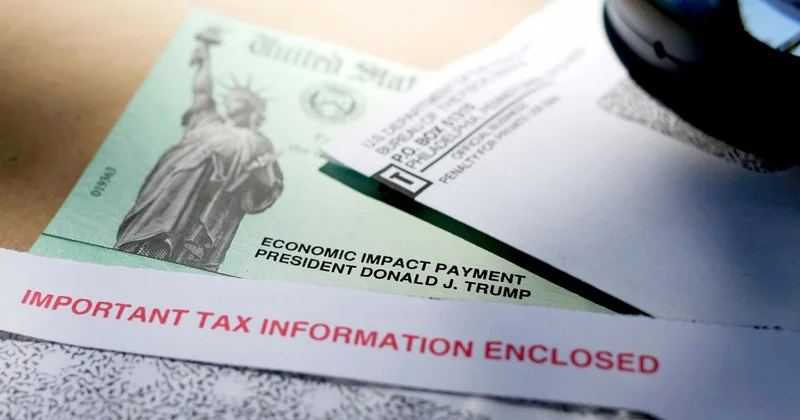360° Financial Trend Detection
360° Financial Trend Detection
The internet's buzzing again with stimulus check rumors, and honestly, my eyes glaze over. November 2025, they say? Another round of "free money" magically appearing in our accounts? The reality, as usual, is far less exciting. Stimulus payment November 2025, IRS direct deposit relief payment & tariff dividend fact check Congress hasn't passed anything, the IRS isn't hinting at anything, and frankly, it feels like we're chasing a mirage in the desert.
But what isn't a mirage, and what should be getting far more attention, is the idea of a "tariff dividend" proposed by none other than Donald Trump. Now, I know what you're thinking: "Trump? Tariffs? That sounds like economic chaos!" And you know what, maybe it could be. But hear me out, because there's a fascinating, potentially revolutionary idea buried beneath the political rhetoric.
Here's the gist: Trump wants to use revenue generated from tariffs – taxes on imported goods – to send direct payments to Americans, specifically those in the middle and lower-income brackets. He's talking about $2,000 or more per person! Treasury Secretary Scott Bessent even suggested it would apply to individuals/families making $100,000 or less. Forget the fleeting, one-time stimulus checks; this could be a recurring dividend, a direct share of the nation's trade wealth distributed to its citizens.
Now, I know what the skeptics are saying. "It's just a proposal!" "It'll never happen!" And yes, there are hurdles. Violet Jira, a reporter from NOTUS, mentioned in a FOX 5 interview how difficult it is to say if it will happen. But the White House's commitment, as stated by Karoline Leavitt, is a significant signal.
But let's step back for a moment. Imagine tariffs not as a weapon of economic warfare, but as a revenue stream, a national piggy bank that directly benefits the people. It's like Alaska's Permanent Fund Dividend, fueled by oil revenues, but on a national scale. Could this be a new form of universal basic income (UBI), funded not by taxes on labor, but by taxes on trade? Think of the possibilities if structured right!

The key here isn't just the money, it's the source of the money. We're talking about a fundamental shift in how we view trade and its benefits. Instead of corporations hoarding the profits of global commerce, a portion is directly redistributed to the people who make it all possible: the consumers, the workers, the very fabric of our society.
What if this becomes a model for other nations? Could we see a global movement towards "citizen dividends," funded by various forms of national wealth, distributed directly to the populace? It's a radical idea, I know, but isn't that where the most exciting breakthroughs often come from?
Of course, there are ethical considerations. Who decides the tariff rates? How do we prevent this from becoming a political tool, used to manipulate voters? How do we ensure that the money is distributed fairly and efficiently, without falling prey to corruption or bureaucracy? These are crucial questions that need to be addressed.
And, let's be honest, the devil is always in the details. How would "high-income people" be defined and excluded? What safeguards would be put in place to prevent fraud and abuse? These are the practical challenges that could make or break this proposal.
But here's what excites me: the potential for a paradigm shift. The potential to redefine the relationship between trade, wealth, and the people. The potential to create a more equitable and sustainable economic future. That's why I'm not dismissing this "tariff dividend" as just another political pipe dream. I'm seeing it as a spark, an idea with the power to ignite a revolution.
This isn't just about a one-time payment; it's about reimagining how the benefits of global trade can be shared with everyone. It's a bold idea, fraught with challenges, but the potential rewards are simply too great to ignore. I, for one, am excited to see where this goes.